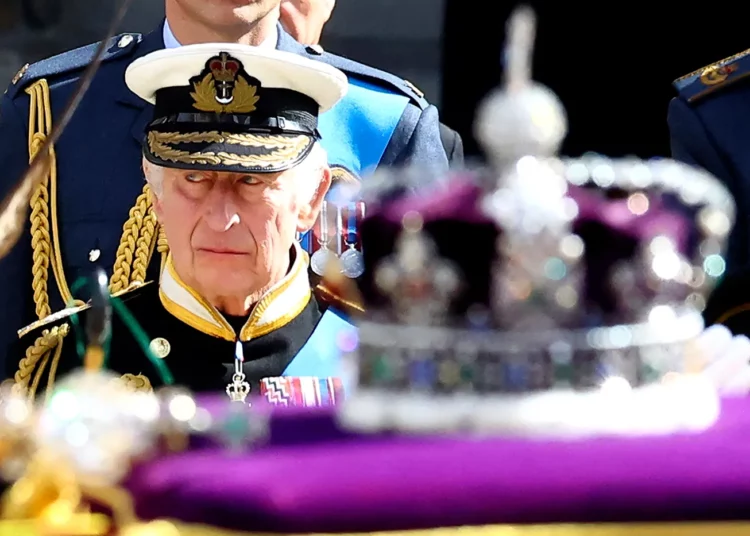On June 23, 2016, just over 17.4 million citizens of the United Kingdom (UK) voted to leave the European Union (EU). The impact of the vote has been widely reported. The results of the referendum turned politics in the UK and the EU upside down. Central to the sentiments of the ‘Leave’ voters was the issue of rising immigration and the inequality between people living in London and the rest of the country.
While London, maybe the most cosmopolitan city in the world, voted to remain in the EU, the rest of the country voted to leave. The prosperity promised by politicians who championed the Brexit has, however, not materialised. The free trade agreement between the UK and the United States of America has proved elusive. So has an agreement with India, a former colony, which only last week overtook the UK as the fifth biggest economy in the world.
And in European capitals, many see the economic turmoil in the UK as a direct consequence of leaving the single market. But just as a changing UK grapple with its own identity, the role of immigrants in its future and its place in the world, the Conservative ruling party has selected Rishi Sunak, the son of immigrants with Indian origins and born in East Africa, as Prime Minister to lead the post-Brexit economy.
This is just as earthshaking as the vote to leave the EU. For centuries, UK has operated as a class society and representative politics has struggled to upend the system. Commoners, citizens without titles and especially immigrants and minorities, could get as close to the elite as they wanted, but were limited in how high they could rise in the society. Rishi Sunak has just shattered that glass ceiling.
Sunak has former Prime Minister, Boris Johnson, to thank for bringing him to the centre of British politics after naming him as Chancellor of the Exchequer (Finance Minister) in 2020. Before Sunak, Johnson had appointed Sajid Javid also of Indian descent as Chancellor. Historically, British prime ministers are most likely to be challenged for the leadership of their own parties and the premiership by the Chancellor. Naming ethnic and religious minorities to fill the position by Johnson was supposed to reduce the chances of a leadership challenge.
As it turned out, it was the resignation of Sunak as Chancellor in July 2022 that ended the leadership of Johnson as leader of the Conservative party. The same scenario played out with Prime Minister Liz Truss. The resignation of Suella Braverman as Home Secretary on October 19, 2022 and to some extent, that of Kwasi Kwarteng as Chancellor of the Exchequer, helped to bring down the government of Liz Truss. Braverman, whose parents migrated from Mauritius and Kenya, is of Indian origins.
In so many ways, in the view of this newspaper, the selection of Rishi Sunak as leader of the Conservative Party and Prime Minister of the United Kingdom, is not only symbolic of the ethnic diversity of the country, which its politics is finally catching up to, but also the rise of India as an economic power house; one that the UK needs as an alternative trading bloc to the EU. Much of the economy and influence of colonial Britain was built by one firm, the East India Company, which at a time was responsible for more than half of the world trade. The company ruled India on behalf of the British monarch for at least a century between 1757 and 1858 and even had its own army. The British crown took direct control of India only after the 1857 Indian rebellion. Then, under British rule, Indian natives could not hold many sensitive government positions in their own country.
Even in the colonial past, the United Kingdom opened its doors to millions of migrants from its colonies. Today, people of Asian descent make up more than seven percent of the UK population and are the largest ethnic minority in the country. Apart Sunak, the mayor of London, Sadiq Khan, an Asian also has his origins in the Indian subcontinent. Pakistan to be precise. It is an example of what a multicultural and multi-religious society should look like.
But what does all this mean for Nigeria, a country of 200 million people and more than 350 ethnic groups? This newspaper sees the emergence of Rishi Sunak as an example of Britain’s ability to reinvent itself and play politics in a way that opens opportunities for ethnic minorities and also help the country achieve its full potential in a changing and more competitive world.
It is hard to pretend, in our view, that the contest for power in Nigeria is not strictly between the major ethnic groups. Tribe and religion have already poisoned the atmosphere ahead of the 2023 general elections. As it is, an Idoma man who naturalizes as a UK citizen probably stands a better chance of becoming prime minister in his adopted country than he does in Nigeria of his birth. Very sad.
Over and above the British local politics, the role being played by minorities from India, Pakistan, Nigeria, Ghana and elsewhere, could be a deliberate plan to reinvent the Commonwealth especially with the death of Queen Elizabeth II and the ascension to the throne by King Charles III.





